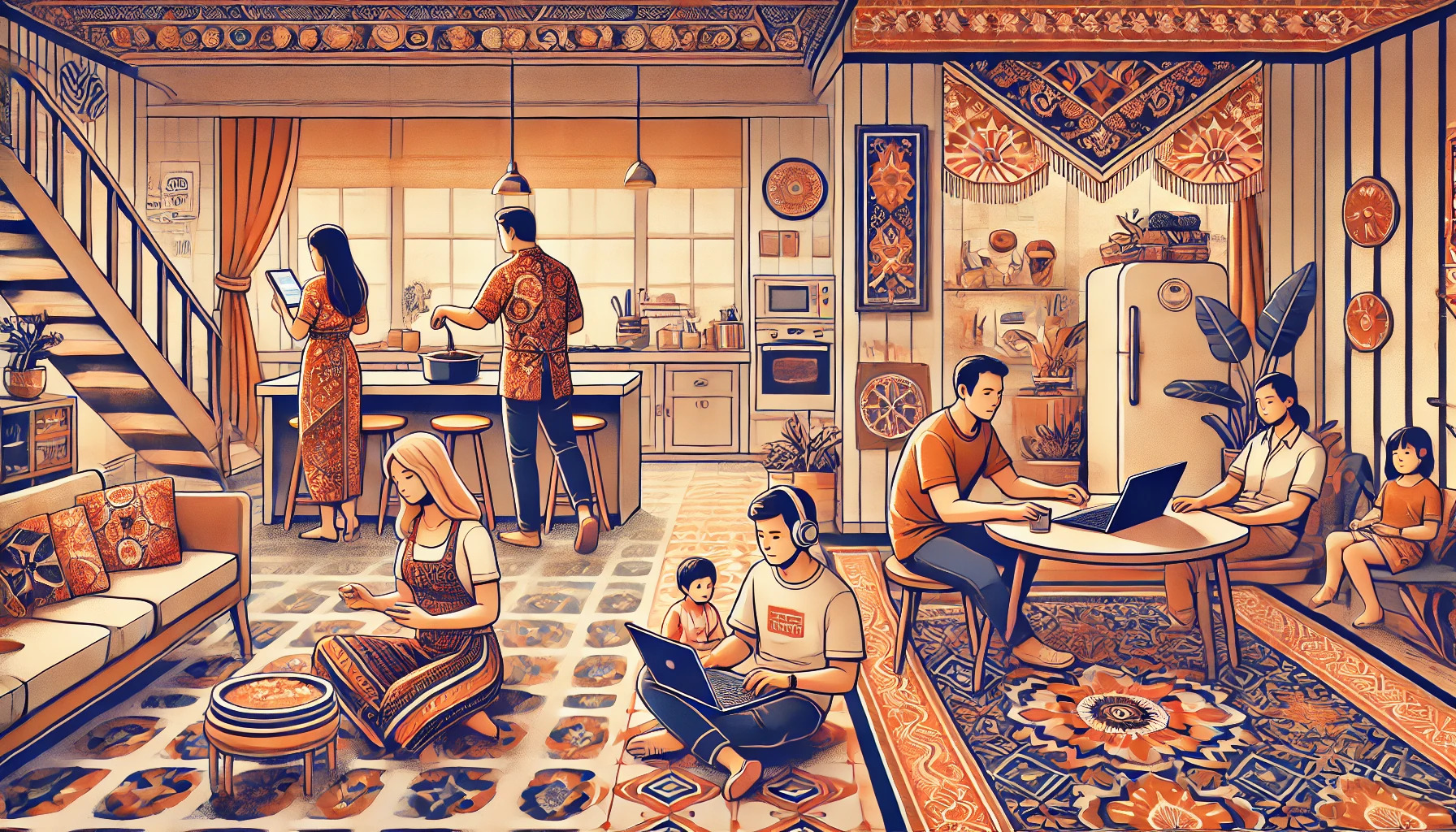Family structures in Indonesia are undergoing significant transformations, driven by the progressive attitudes of Millennials and Gen Z. These generations are reshaping traditional norms by blending cultural heritage with modern values. This shift reflects broader societal changes, including the rise of gender equality and the use of technology in family life.
Shifting Gender Roles
One of the most notable changes is the redefinition of gender roles within the household. Historically, Indonesian families adhered to the patriarchal norm of men as breadwinners and women as caregivers. However, as more women join the workforce, this dynamic is shifting. Today, both men and women are increasingly sharing financial and caregiving responsibilities.
Millennials approach this change cautiously, often merging new roles with traditional values. In contrast, Gen Z appears more progressive, openly embracing gender equality in family roles. A survey from the Indonesia Millennial and Gen Z Report 2025 reveals that 82% of respondents support gender equality, though they prefer gradual changes that respect cultural norms.
For example, fathers are now taking on nurturing roles, from attending school events to preparing meals. Simultaneously, mothers are leveraging digital tools and platforms to balance professional careers and family life, showcasing a harmonious blend of tradition and innovation.
Finding Balance
Despite these advancements, modern Indonesian families face challenges in aligning these evolving roles with societal expectations. In conservative communities, deviation from traditional norms may still invite criticism. However, Millennials and Gen Z emphasize the importance of progress over perfection.
Kalis Mardiasih, a young activist, aptly states, “It’s not about perfection but gradual progress in breaking stereotypes and creating equitable roles.” This sentiment captures the essence of the change: a thoughtful and inclusive approach to fostering equality within families.
This shift also impacts the next generation. By growing up in households with diverse role models, children are exposed to a balanced family environment, learning the importance of mutual respect and shared responsibilities.
The Path Forward
As Indonesian families continue to evolve, the focus remains on finding a balance between preserving cultural heritage and embracing modernity. Millennials and Gen Z are leading this journey, proving that change does not have to mean abandoning tradition—it can mean adapting it to the realities of today’s world.
Through open dialogue and incremental adjustments, these generations are redefining what it means to be a family in Indonesia. The result is a dynamic yet deeply rooted family structure, uniquely blending the old and the new.
Credit: Insights from the Indonesia Millennial and Gen Z Report 2025 by IDN Research Institute.
Read More






 Wednesday, 04-03-26
Wednesday, 04-03-26







